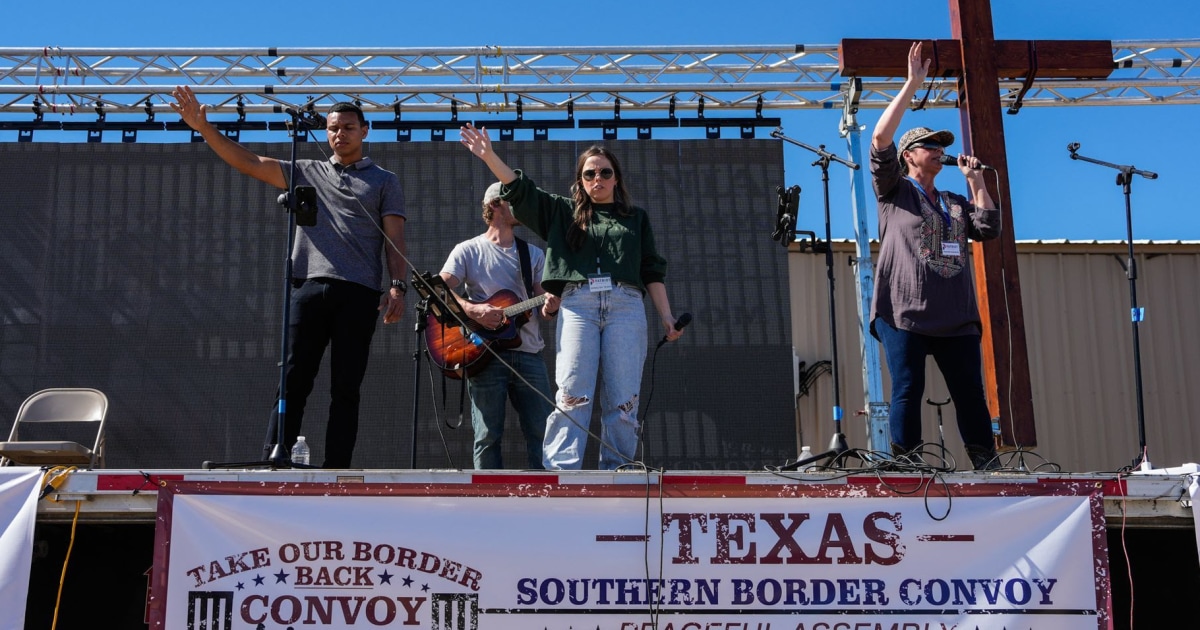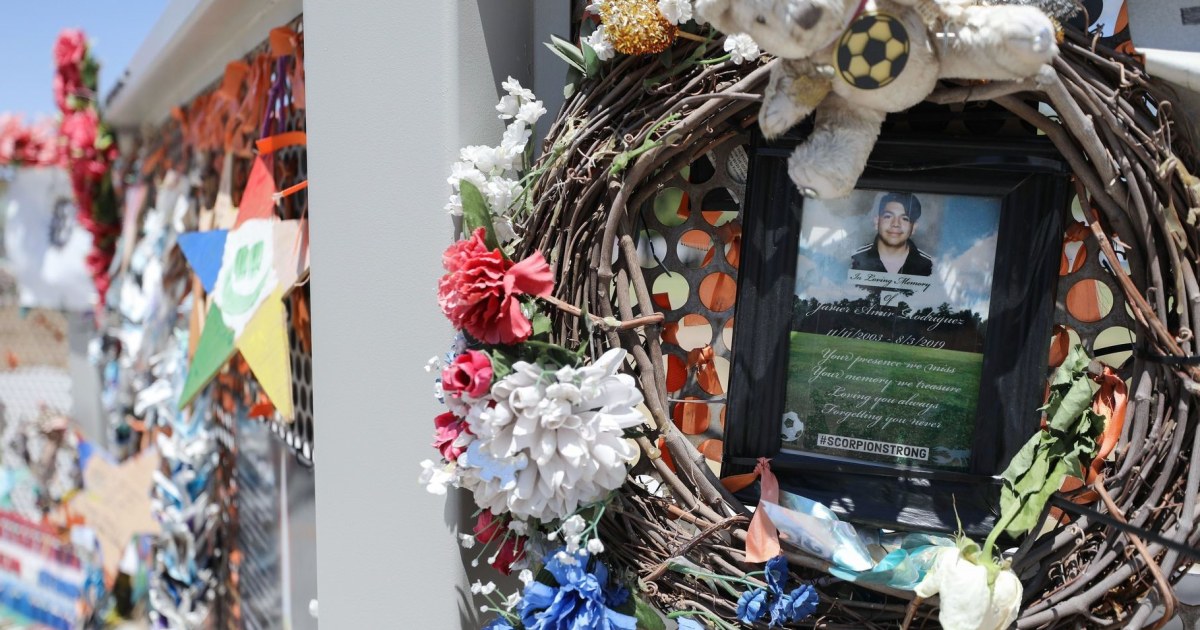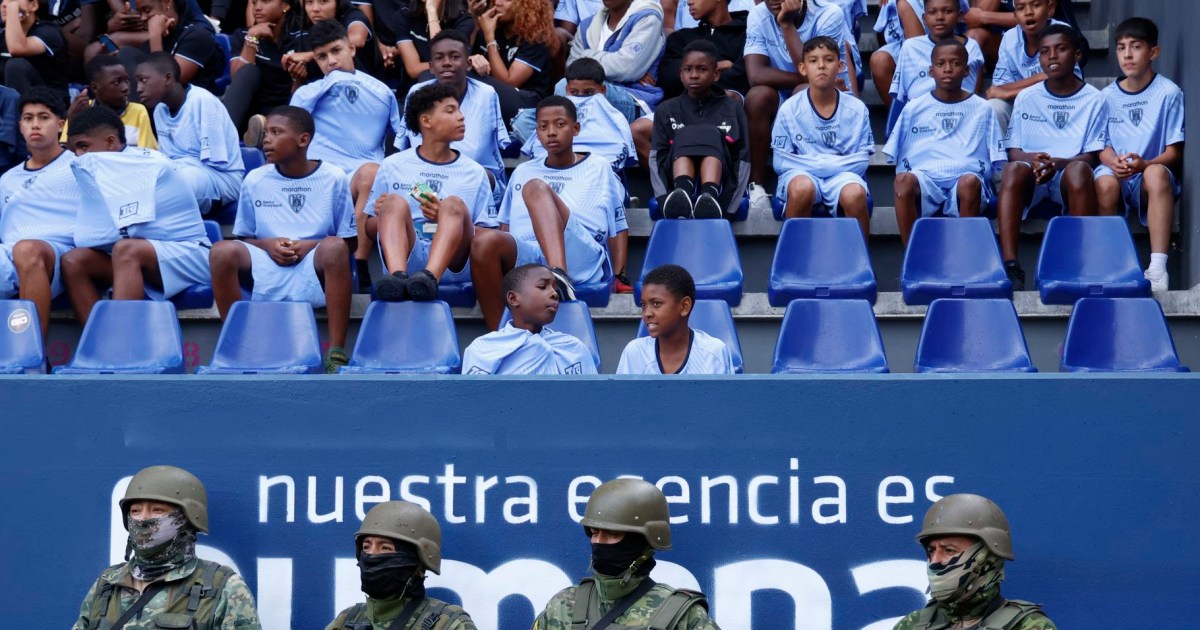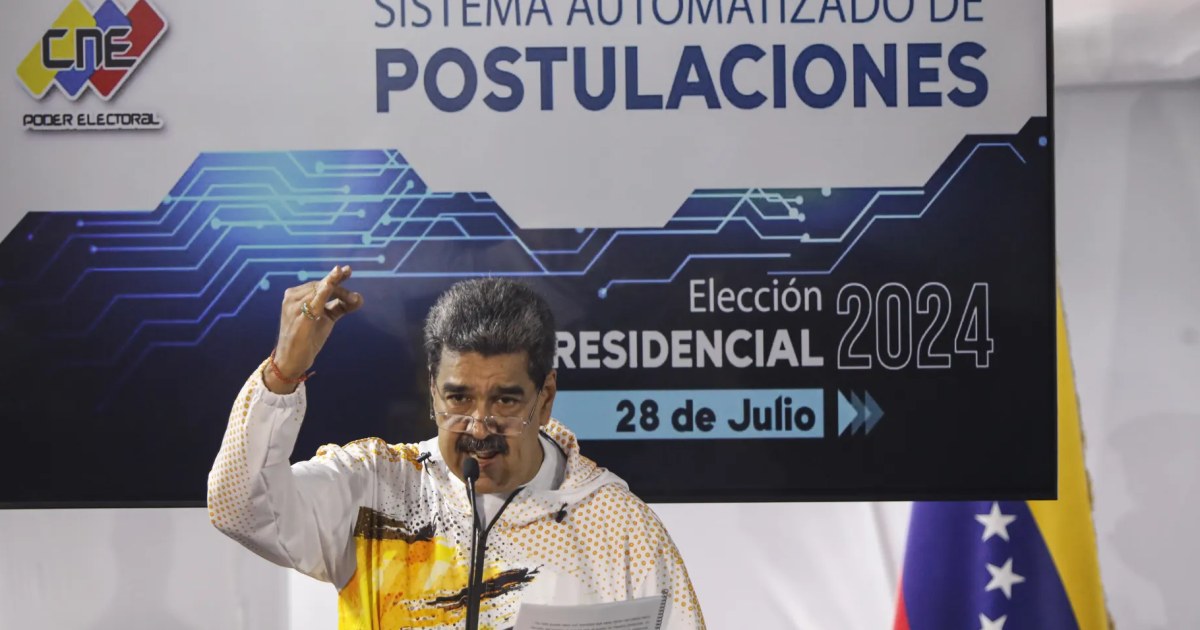By Marina E. Franco and Russell Contreras
Welcome to Axios Latino
, a newsletter designed to tell you every Thursday the stories that have a special impact on the Latino communities in the United States and in Latin America.
If you are interested in subscribing (in English), you can do so by clicking here.
Every week we will try to make it also available in Spanish for those who prefer to receive their news in this way.
1 Big Topic: What's Behind the Border Emergency
The arrival of more immigrants to the US-Mexico border in recent weeks, particularly from families and unaccompanied minors, is being described as a crisis by many.
But the situation is not, so far, as pronounced as it was in the summer of 2019 in numerical terms.
Photo illustration by Aïda Amer / Axios With photos by Johan Ordoñez / AFP and Isaac Guzmán / AFP
The general situation:
In recent weeks, an average of 500 children and adolescents have tried to cross the border every day, largely seeking to be able to reunite with family members already in the United States.
As of Thursday morning there were more than 10,000 unaccompanied minors in federal custody;
the facilities where they are housed are overwhelmed, both on the US and Mexican sides.
From Mexico, the authorities
are carrying out more raids and have mobilized the National Guard near crossing areas on the border with Guatemala and at La Bestia stations.
The White House announced Wednesday night
that Vice President Kamala Harris will be in charge of managing the situation on the border, with a response that, according to plans, will include coordinating with the governments of Mexico and the Central American countries of the Northern Triangle. .
Read between the lines:
The rise in the number of Central Americans mobilizing and trying to enter the United States is due to a series of disasters and crises in their countries of origin.
The pandemic exacerbated poverty
, and levels of violence and corruption have remained virtually as high despite the coronavirus closures.
The strikes of cyclones Eta and Iota in November wiped out entire villages and worsened famine levels by leaving thousands without access to key services such as electricity, water or health care.
In his words:
"The new faces we see this year are climate migrants, those people [...] after the impact of the hurricane were left homeless, homeless, jobless and also without crops," says Rubén Figueroa , from the Mesoamerican Migrant Movement NGO, to Noticias Telemundo.
Bottom line:
Senators like Republican Lindsey Graham now indicate that immigration reform measures that are about to be voted on - even those that are more popular with the population such as Dreamers having a path to citizenship - would only be approved if the White House " it stops "the flow of people.
2. The drug trafficker linked to the president
Honduran President Juan Orlando Hernández in January 2020.AP /
A Honduran who accused,
during sworn statements in court, the president of that country, Juan Orlando Hernández, of having accepted bribes from drug traffickers has just been convicted in a New York court.
Why it matters:
Hernandez faces no charges, but was branded a "co-conspirator" by prosecutors, and one of his brothers, Tony Hernandez, will receive his sentence next week after he was convicted in 2019 of ... yes, drug trafficking.
The other version:
The Honduran leader, who faces allegations of fraud from the last election and whose mandate has seen an increase in emigration from the country, denies the accusations.
In his words:
"Hernández believes that he can avoid the gallows that the Justice Department is beginning to close if he shows that he wants to cooperate with the new Administration" of Joe Biden, a US official told The Washington Post.
3. A contest that will be a barometer of the immigration issue
Antoinette Sedillo López and Victor Reyes, two of the candidates to represent New Mexico's 1st District in the special election to replace Deb Haaland. Courtesy of the campaigns
The special election in New Mexico
to determine who will replace Deb Haaland, now Secretary of the Interior, in her seat in the House of Representatives is revealing the frustration among Latino politicians regarding the handling of migration flows by the White House.
Why it matters:
How the race will unfold in New Mexico's Democratic-leaning 1st District with a large Hispanic population and where Albuquerque is located could indicate how Latino voters will judge the Biden Administration at the polls.
Read between the lines:
The partisan divide around immigration seen nationally between Republicans and Democrats is also showing up among various population groups.
But in the case of Latinos
, and candidates of Latino descent, you can also see how even Hispanic people born in the United States who are the target of anti-immigrant sentiments also do not agree on what immigration policy should be.
Read more about it.
4. The epidemic that is not talked about
Illustration by Sarah Grillo / Axios
Opioid use
has skyrocketed as the coronavirus pandemic spreads, and Hispanics have been among the hardest hit by overdoses.
Why it matters:
There are very few places in the United States that offer rehab and detox services in Spanish or bilingual.
That, along with a stigma in the community when it comes to seeking help with an addiction, has meant that deaths from substance abuse are increasing more among Latinos than for other groups.
Latino adults
have
also
more acutely suffered episodes of depression or suicidal thoughts during the pandemic, according to the Centers for Disease Control and Prevention (CDC, for its acronym in English), which experts believe has encouraged relapses and increased drug use.
5. You are accused of rape; the ruling party still backs him
Although Félix Salgado Macedonio faces
two formal complaints of rape, and three accusations of sexual abuse, the ruling party of Mexico, Morena, has turned its back on him and continues to push his candidacy for the government of Guerrero, a state in the southwest of the country.
The general situation:
Mexico is one of the worst countries to be a woman.
Eleven Mexican women are murdered daily, on average, while 99.7% of the sexual abuses that are reported are not punished or sometimes not even investigated.
Protesters often suffer additional abuses by authorities in protests, and Mexican women have the worst numbers in all of Latin America when it comes to accessing economic opportunities.
Activists claim that the party's support for Salgado Macedonio shows a political disinterest in improving the situation for Mexican women.
In his words
: President Andrés Manuel López Obrador, who says that his government is supposedly feminist, responded "ya chole", enough already, to the complaints about the decision of his party.
The Mexicans responded with their own campaign:
ya chole
, but with violence against women.
The other version:
Salgado Macedonio, formerly mayor of the tourist port of Acapuldo, assures that the accusations dating from 1009 to 2016 are a "political lynching."
He continues to have support in Guerrero and, if his candidacy is maintained, Salgado Macedonio could well win in June.
6. Unequal access that puts lives at stake
Gustavo Hernández, from the Bronx, receives his first dose of the coronavirus vaccine on January 31, 2021.Reuters /
The vaccination rates against COVID-19
for Hispanics are not close to the figure that they should have taking into account their population weight, not even in very Latino states like California or Arizona.
The Biden administration has just promised $ 10 billion in funding to make vaccines more widely available to "underserved populations."
Why it matters:
Someone Latino in the United States is three times more likely to be hospitalized if they catch COVID-19 than it is for non-Hispanic whites, and the likelihood of death is two times higher for hyapsnos, according to data from the CDC.
It is key to remedy the disparities, and soon.
Vaccines given
to white people are more than twice those of Latinos in the 44 states that do report injection data by population group, according to an analysis by the Kaiser Family Foundation, a nonprofit organization for health issues.
The disproportionate effect
is due, in part, to inequalities in health access prior to the pandemic, the CDC acknowledges.
There is also a certain distrust towards the doses on the part of some Latinos and difficulty in making appointments with procedures that are not always available in Spanish (this tool can help you with your vaccination).
In some cases, undocumented people
have reported being afraid to go to get vaccinated for fear that the immigration authorities will look for them there.
But don't worry: if you are already in a group eligible to be vaccinated, in many states you do not need any proof of immigration status and the federal government has promised that there will be no immigration action towards people who are being vaccinated.
In the rest of the continent things are
not going particularly well.
Doses are needed and, on average, Latin American countries that do already have vaccination campaigns have only partially or totally immunized 82 out of every 1,000 people.
Chile has made great progress in terms of the number of people vaccinated, but even so the capital, Santiago, and other areas had to return to a quarantine period this Thursday because infections have not decreased.
In Mexico and Colombia there were scandals related to immunization this week due to, respectively, the finding that maquila workers received apocryphal vaccines and the increase in cases of elderly Colombians who are falsely injected.
Bottom line:
Brazil currently has the highest daily death rate from COVID-19 in the world, and the implications are global.
Experts warn that it could become a breeding ground for many more variants of the SARS-CoV2 virus.
7. Weapons everywhere
Jair Bolsonaro, in the background, during a parade for the anniversary of Brazil's independence in September 2019.Reuters /
Anyone in Brazil who wants to buy up to six firearms and carry two, even high-caliber ones, can now do so thanks to a series of executive actions by the president, Jair Bolsonaro.
Why it matters:
At a time when the United States has renewed the debate on having greater control of arms, in the South American country the carrying of arms has already increased 65% with the decrees of the Army captain I return to president.
The argument that this way people can defend themselves and reduce violence has not been fulfilled, as the very high homicide rate rose last year after having registered a drop in 2019.
Experts warn that paramilitary and criminal groups will now have easier access to firearms because Bolsonaro's decrees adjust a 2003 law that restricted the purchase and carrying of weapons almost exclusively to security forces.
8. Mascaritas that taste like masks
Professional wrestlers promote the use of masks in a market in Mexico City
March 12, 202100: 33
Wrestlers know particularly well the importance of wearing a mask (taking it off is a sign of defeat in the ring) and now they have taken that message from the home run to the streets.
A group of members of the Mexican Lucha Libre has been visiting the Central de Abastos, one of the largest markets in the world and a site that last year was hit by COVID-19 infections, to promote the use of face masks and antibacterial gel .
Those who resist putting it on have a fate worse than an iron: being sprayed with disinfectant.
That's why you don't have to piss off the rude ... and neither should the technicians.
Thanks for reading, see you next week. Take care.









